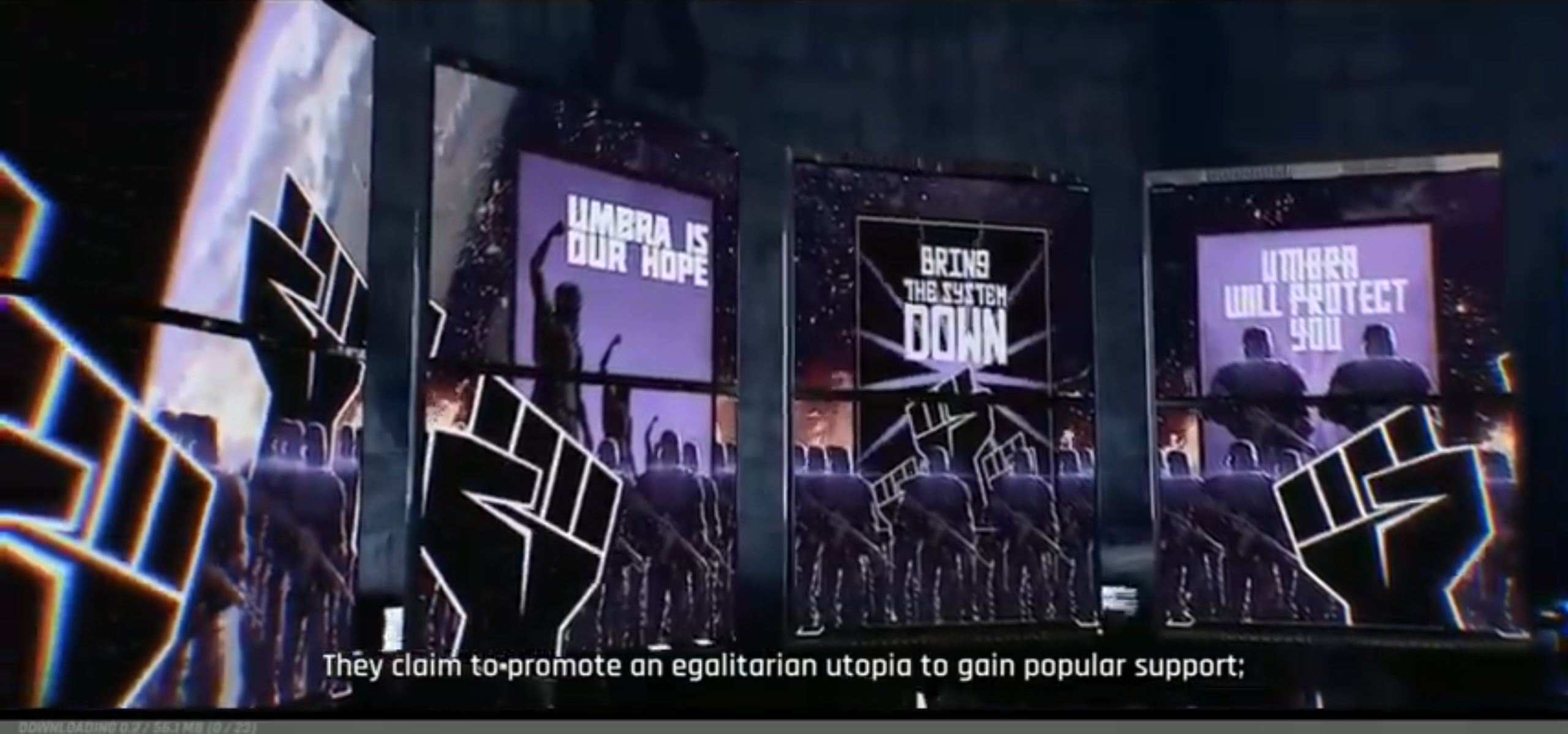Ubisoft apologizes for using a raised fist to represent villains in a mobile game
The criticism of Tom Clancy's Elite Squad is bigger than the use of the fist, however.

A statement from Ubisoft says that the company will be removing the 'raised fist' symbol from the mobile game Tom Clancy's Elite Squad. The game used the symbol to represent its villains, a revolutionary organization called Umbra.
In a statement posted to Twitter, Ubisoft called the inclusion of the symbol "insensitive and harmful in both its inclusion and how it was portrayed."
An update regarding Tom Clancy's Elite Squad: pic.twitter.com/G6Hb1SO7GxAugust 29, 2020
Tom Clancy's Elite Squad is a "hero collecting" game available on iOS and Android that includes heroes and villains from the broader Tom Clancy brand. Ubisoft has stated that it will remove the image in the next update for the game on Tuesday, September 1 for Android and "as soon as possible on iOS."
The raised fist is a cultural symbol of defiance, support, and revolution in many countries. It's widely known in the United States as the "Power Fist" or "Black Power Fist." After a video from the game went viral on Twitter, it was widely criticized and mocked for its unsubtle message: Use of the raised fist to represent an evil international conspiracy is a clear attack on the actual Black Lives Matter movement and other present and historical struggles for Black liberation.
Furthermore, the game's premise in general suggests that protesters are a threat which world governments must step outside the law to control. The plot plays into conspiracy theories which claim that any popular movement related to social and economic justice is actually backed by secret, evil cabals rather than being a legitimate acts of protest. Here's the original game cinematic, which one top comment calls "Fascist Death Squad: The Game."
Ubisoft has faced frequent criticism for its characterization of its games as apolitical, even though they often carry overtly political themes and messages. Last year, Ubisoft's vice president of editorial at the time, Tommy Francois, made claims that the company's games do not endorse a specific political ideology over any other.
"Our goal is to give players all the information we can, and then let them choose which sides of our game worlds they want to explore," Francois said. He went on to say that both he and Ubisoft chief creative officer Serge Hascoët ask developers to "push" them on creative topics.
The biggest gaming news, reviews and hardware deals
Keep up to date with the most important stories and the best deals, as picked by the PC Gamer team.
Both Francois and Hascoët are no longer with the company. Earlier this year, multiple accusations of misogynistic abuse and a toxic culture at Ubisoft were made. Both executives allegedly contributed to that culture. Hascoët stepped down late last month and was followed quickly by Francois.
Jon Bolding is a games writer and critic with an extensive background in strategy games. When he's not on his PC, he can be found playing every tabletop game under the sun.

